Related Research Articles
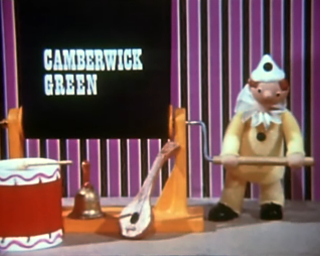
Camberwick Green is a British children's television series that ran from January to March 1966 on BBC1, featuring stop motion puppets. Camberwick Green is the first in the Trumptonshire trilogy, which also includes Trumpton and Chigley.
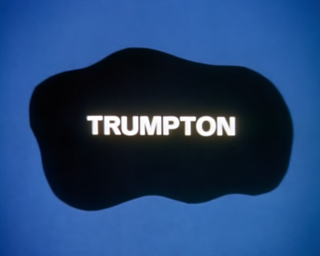
Trumpton is a British stop-motion children's television series from the producers of Camberwick Green. First shown on the BBC from January to March 1967, it was the second series in the Trumptonshire trilogy, which comprised Camberwick Green, Trumpton and Chigley. Like the other two series, Trumpton continued to be repeated well into the 1980s as a part of the BBC's children's schedules.
A midshipman is an officer of the lowest rank, in the Royal Navy, United States Navy, and many Commonwealth navies. Commonwealth countries which use the rank include Canada, Australia, Bangladesh, Namibia, New Zealand, South Africa, India, Pakistan, Singapore, Sri Lanka, and Kenya.

The United States Merchant Marine is an organization composed of United States civilian mariners and U.S. civilian and federally owned merchant vessels. Both the civilian mariners and the merchant vessels are managed by a combination of the government and private sectors, and engage in commerce or transportation of goods and services in and out of the navigable waters of the United States. The Merchant Marine primarily transports domestic and international cargo and passengers during peacetime, and operate and maintain deep-sea merchant ships, tugboats, towboats, ferries, dredges, excursion vessels, charter boats and other waterborne craft on the oceans, the Great Lakes, rivers, canals, harbors, and other waterways. In times of war, the Merchant Marine can be an auxiliary to the United States Navy, and can be called upon to deliver military personnel and materiel for the military.
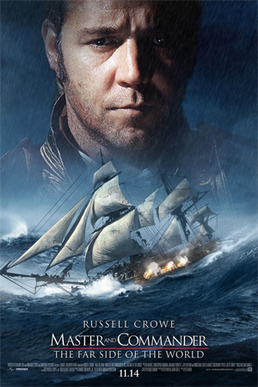
Master and Commander: The Far Side of the World is a 2003 American epic period war-drama film co-written, produced and directed by Peter Weir, set during the Napoleonic Wars. The film's plot and characters are adapted from three novels in author Patrick O'Brian's Aubrey–Maturin series, which includes 20 completed novels of Jack Aubrey's naval career. The film stars Russell Crowe as Aubrey, captain in the Royal Navy, and Paul Bettany as Dr. Stephen Maturin, the ship's surgeon. This is the second onscreen collaboration for Crowe and Bettany, who previously co-starred in 2001’s A Beautiful Mind.

Impressment, colloquially "the press" or the "press gang", is the taking of men into a military or naval force by compulsion, with or without notice. European navies of several nations used forced recruitment by various means. The large size of the British Royal Navy in the Age of Sail meant impressment was most commonly associated with Great Britain and Ireland. It was used by the Royal Navy in wartime, beginning in 1664 and during the 18th and early 19th centuries as a means of crewing warships, although legal sanction for the practice can be traced back to the time of Edward I of England. The Royal Navy impressed many merchant sailors, as well as some sailors from other, mostly European, nations. People liable to impressment were "eligible men of seafaring habits between the ages of 18 and 55 years". Non-seamen were sometimes impressed as well, though rarely. In addition to the Royal Navy's use of impressment, the British Army also experimented with impressment from 1778 to 1780.
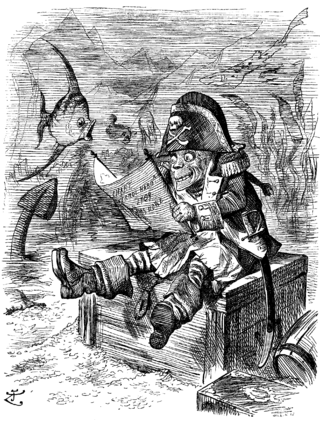
Davy Jones's locker is a metaphor for the oceanic abyss, the final resting place of drowned sailors and travellers. It is a euphemism for drowning or shipwrecks in which the sailors' and ships' remains are consigned to the depths of the ocean.

The Battle of Bladensburg, also known as the Bladensburg Races, was a battle of the Chesapeake Campaign during the War of 1812, fought on 24 August 1814, at Bladensburg, Maryland, 8.6 miles (13.8 km) northeast of Washington, D.C.

The London Fire Brigade (LFB) is the fire and rescue service for London, the capital of the United Kingdom. It was formed by the Metropolitan Fire Brigade Act 1865, under the leadership of superintendent Eyre Massey Shaw. It has 5,992 staff, including 5,096 operational firefighters and officers based at 102 fire stations.
Station officer is a supervisory rank in a number of Commonwealth and other fire services, including those in Australia, the United Kingdom, Ireland, and the New Zealand Fire Service.

The Union Navy was the United States Navy (USN) during the American Civil War, when it fought the Confederate States Navy (CSN). The term is sometimes used carelessly to include vessels of war used on the rivers of the interior while they were under the control of the United States Army, also called the Union Army.

The fire services in the United Kingdom operate under separate legislative and administrative arrangements in England and Wales, Northern Ireland, and Scotland.
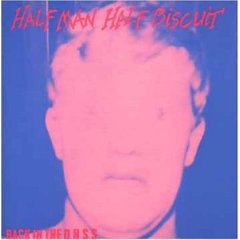
Back in the DHSS is the first album released by the UK rock band Half Man Half Biscuit (HMHB), in 1985.
Ordinary seaman is a military rank used in naval forces.

Operation Infatuate was the code name given to an Anglo-Canadian operation in November 1944 during the Second World War to open the port of Antwerp to shipping and relieve logistical constraints. The operation was part of the wider Battle of the Scheldt and involved two assault landings from the sea by the 4th Special Service Brigade and the 52nd (Lowland) Division. Meanwhile, the 2nd Canadian Infantry Division would force a crossing of the Walcheren Causeway.
Gordon Murray was a British television producer and puppeteer. He created and wrote some of the most repeated children's television programmes ever seen in Britain. Camberwick Green, Trumpton, and Chigley, collectively known as the Trumptonshire Trilogy, were all made by the company he founded.

On 6 June 1982, during the Falklands War, the British Royal Navy Type 42 destroyer HMS Cardiff engaged and destroyed a British Army Gazelle helicopter, serial number XX377, in a friendly fire incident, killing all four occupants. Cardiff, on the lookout for aircraft flying supplies to the Argentine forces occupying the Falkland Islands, had misidentified the helicopter as an enemy C-130 Hercules. Although the helicopter's loss was initially blamed on enemy action, a subsequent inquiry found Cardiff's missile to be the cause.
Isaac Campbell Pugh was a United States volunteer soldier who was a veteran of the Black Hawk War, the Mexican–American War and the American Civil War; rising to the rank of Brevet brigadier general.
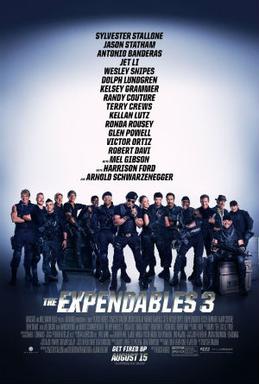
The Expendables 3 is a 2014 American action film directed by Patrick Hughes and written by Creighton Rothenberger, Katrin Benedikt and Sylvester Stallone. It is the third installment in The Expendables franchise and the sequel to The Expendables (2010) and The Expendables 2 (2012). The film features an ensemble cast of largely action film stars including Sylvester Stallone, Jason Statham, Antonio Banderas, Jet Li, Wesley Snipes, Dolph Lundgren, Kelsey Grammer, Terry Crews, Randy Couture, Kellan Lutz, Ronda Rousey, Glen Powell, Victor Ortiz, Mel Gibson, Harrison Ford, and Arnold Schwarzenegger.

Michael Creighton Balfour was an English actor, working mainly in British films and TV, following his TV debut in the BBC's The Marvellous History of St Bernard, in 1938. He was a recognisable face, often in small character parts and supporting roles, in nearly two hundred films and TV shows, from the 1940s to the 1990s, often playing comical heavies or otherwise shady characters notable for their "loud" clothes, sometimes convincingly cast as an American.
References
- ↑ An inefficient or novice seaman. (1892 — 1938). "W. E. Dexter They had a pack of fake seamen sailing on dead men's discharges—a crew of 'Paddy Westers' (1938)".
- ↑ "London Fire Brigade - Women in the Brigade". London-fire.gov.uk. 28 February 2010. Archived from the original on 12 April 2013. Retrieved 5 October 2012.
- ↑ "Trumpton Firemen. Pugh, Pugh, Barney McGrew". YouTube. 7 September 2010. Archived from the original on 21 January 2017. Retrieved 5 October 2012.
- ↑ "Paddy West". Archive.org. Archived from the original on 25 June 2022.
- ↑ "Paddy West". Archived from the original on 7 July 2022. Retrieved 25 October 2020.
- ↑ "Paddy West". Archived from the original on 25 June 2022. Retrieved 25 October 2020.